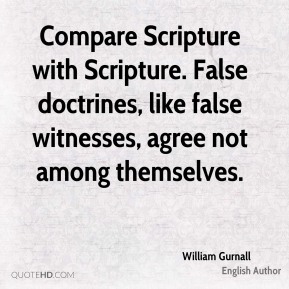Scriptural Balance Goes for Hard Sayings ... but Why Not for "Soft"? @CharlesCapps1
@mythociate (21428)
Oklahoma City, Oklahoma
December 3, 2017 10:23am CST
In the video below, Bible-teacher Charles Capps explains that some of the things "the Bible says" are hard sayings---they are "statements in the Bible," but they aren't really 'what the Bible says.'
(He gives examples like 'when a congregant of the early church said he sold his land and gave all the proceeds to the church' (and you can 'hear' that as "The Bible saying he gave all the proceeds to the church," when he actually (the Bible also says) only gave the church 'part' of the proceeds. https://youtu.be/2IkXS0ejh6E
(Another, more-common example comes from the Hebrew not making any difference between 'making something happen' and 'allowing something to happen: e.g. God didn't really 'harden Pharoah's heart,' but God 'let Pharoah's heart be hardened';
(Or the main example Capps give us: God didn't 'force the sighted people not to see nor -the hearing people not to hear'; but the people chose not to see or hear!)
That's why Capps tells us to--when we read 'something in the Bible that doesn't sound like "something the Bible would say" (usually in the Old Testament)'--to check it against 'other places it's mentioned in the Bible' (usually in the New Testament). And he mentions how Jesus tells us (at least twice, Matthew 18 verse 16 and -verse 19) how 'two or more witness' is "proof."
This shows me why I always feel like 'adding to' the message when people post "feel good'-scriptures: because they are "only one true witness," verified by the false witness of 'a person's feelings.'
Why don't people include 'proof-Scriptures' when they post a feel-good verse?
No responses





